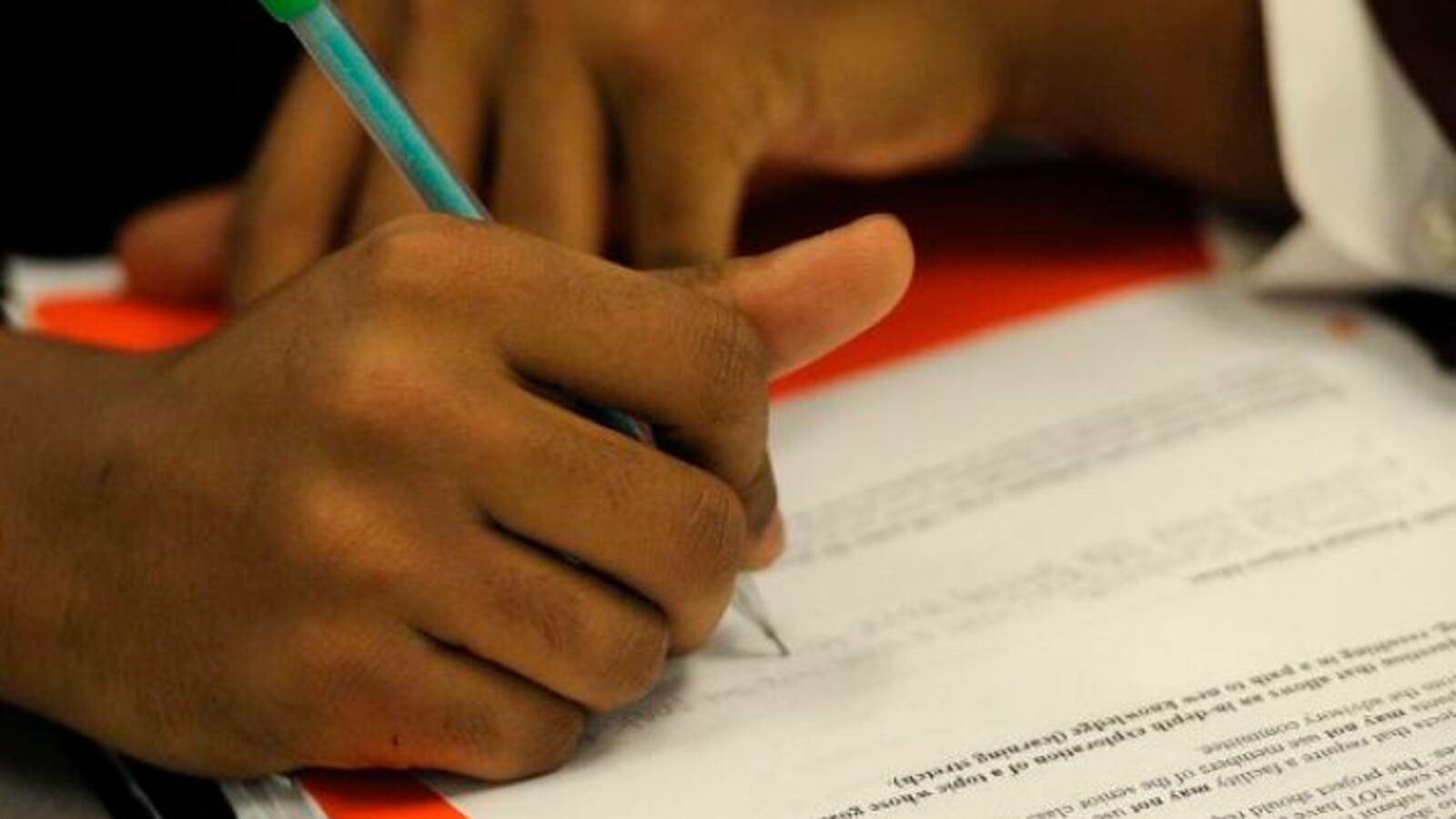This year, not a single Tennessee student failed their social studies or history assessment — even though more than half of students statewide failed exams for most other subjects.
State officials now say that the 100 percent passing rate is caused by score inflation and lax standards rather than social studies prowess. In coming school years, they hope that won’t be the case.
After more than a decade of neglect, the state has revamped social studies standards and the assessments that go with them. This year, students will take redesigned tests based on those standards, and the passing rate will probably drop. Because the standards are new, the test won’t impact students’ grades or be counted on schools’ 2014-2015 report card.
“In assessment design, there are lots of different decisions that affect the rigor and difficulty of the test and that affect the ultimate scoring,” said Emily Barton, the assistant commissioner of education in charge of the social studies revamp. Neither the cut scores–the minimum number of questions a student needs to answer correctly to pass the test– nor the standards had been revisited in more than a decade. If the cut score is too low, students can pass a test just by randomly guessing on every question.
“(The new test is) just going to be more rigorous because of the new standards, so consequently, I think it makes sense to expect that the rate of students scoring proficient or advanced will more than likely drop,” said Jared Myracle, a Gibson County Special School System administrator and former history and social studies teacher who helped develop the new standards. “I hope what happens, if and when scores decline, is that people would say, ‘Why did this happen? I hope that they’d look at the standards and realize that we can’t expect to perform 100 percent on an assessment that actually includes meaningful skills.”
The new standards are aligned to applicable literacy Common Core standards, and focus on analysis and making connections between different areas and time periods, and less on memorization, Myracle said. (The standards are not Common Core though — those standards are only for literacy and math.)
“Social studies will have to be much more than students gathering information from taking notes,” he said. “It should be a much more involved class, engaging with primary sources, speeches, and documents.”
The last time social studies standards, which apply to social studies in kindergarten through eighth grade and history and geography classes in high school, were updated was in 2002. Usually, standards are updated every six years but in 2008, in the midst of a math and literacy standards overhaul, social studies was overlooked, Myracle and Barton said. The TCAP for social studies and history was shorter than ones for other subjects, and cut scores ensured most students would pass.
That made social studies teachers feel their subject gets short shrift, said Mark Finchum, a social studies teacher at Jefferson County High School and the head of the Tennessee Council for Social Studies. Federal education guidelines tied to initiatives like Race to the Top focus on math and literacy, which often causes social studies to be almost entirely overlooked in younger grades, where schools focus on the exams whose results keep them open.
“At the beginning, when they first started all that testing, I was glad I didn’t have to do it,” Finchum said. “I was glad I was able to do what I needed to do, and not have to worry about all that other stuff,” he said, referring to standardized test preparation. But then, he said, he was faced with a common criticism of the accountability movement: whatever is tested is focused on more by administrators and students.
“That is why I’d like to see social studies get a good (End of Course) type of assessment,” Finchum said. “So that we can see social studies valued on the level that it should be.”
State officials also felt social studies was not getting a fair shot, and in 2012, began the process of making standards more rigorous. A task force studied standards from states considered to have the best. The new standards were adopted by the board of education in 2013.
“Teachers from across the state for years had been telling us that they wanted us to look at the social studies standards,” Barton said. She pointed to the fact that far more students were proficient in U.S. History than English III. Students take both exams their junior year of high school. The majority fail English. “So we knew there were a different level of expectations,” she said.
The Tennessean recently reported that Metro Nashville Schools was one of a handful of school systems across the state not buying new social studies textbooks, in favor of teacher-chosen online materials, although they said cost was not a factor. Tullahoma City Schools began to experiment with open-source social studies textbooks, online texts that can be easily updated, in 2013.
Social studies courses have also been restructured. For example, ninth graders used to be able to choose either geography, which includes more current events, or world history in the ninth grade. Now, both classes are combined into one.
Social studies teachers’ Tennessee Value-Added Assessment System, or TVAAS, scores should not be impacted by the shift in standards and assessments, since TVAAS is computed according to statewide trends.
Myracle said the change will ensure that a student doesn’t totally miss one subject or the other. Finchum is concerned with that shift, though, saying that he would prefer his students get a deeper understanding of one subject, rather than a shallow understanding of either.
Regardless, Finchum is always happy to see social studies appreciated, he said.
“Where do you learn about citizenship?” he said. “Not in math class.”
The updated standards can be found here.

